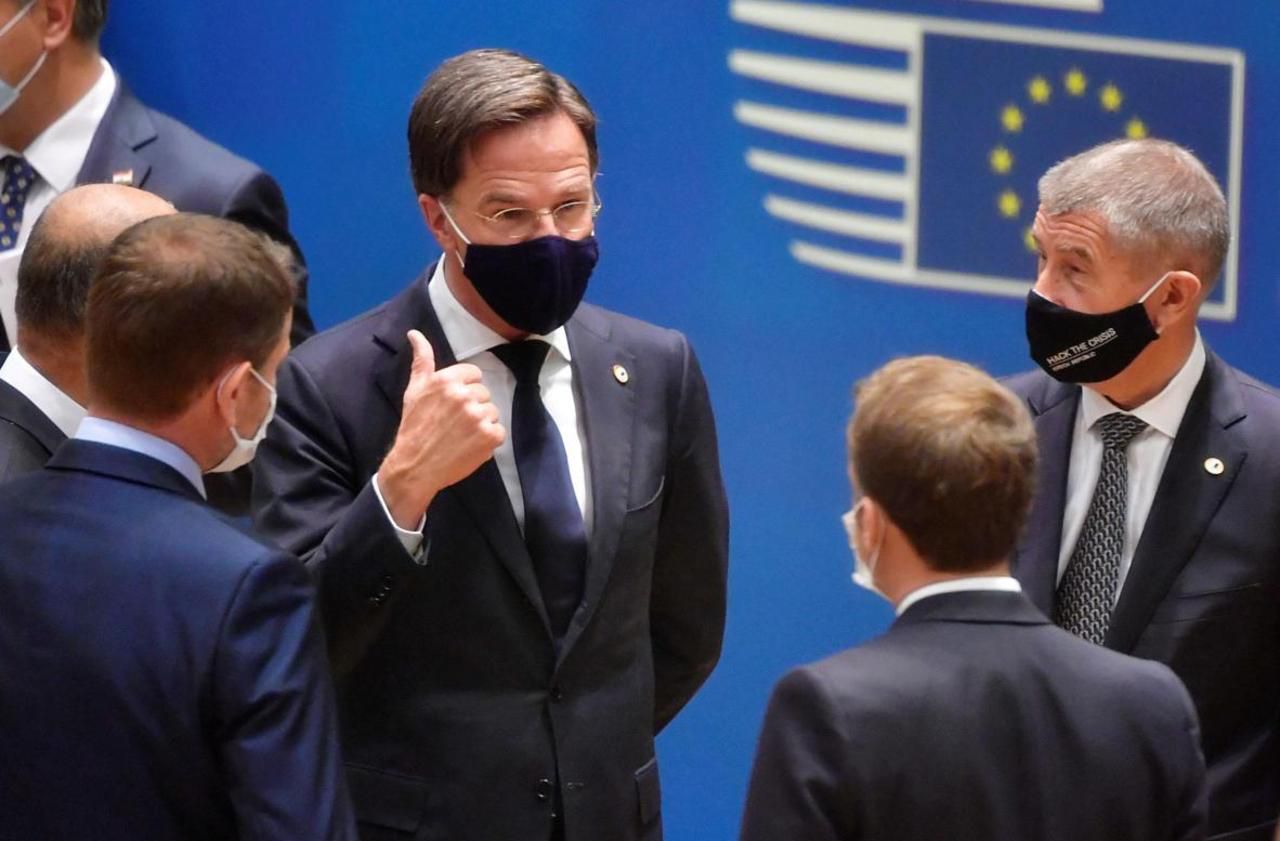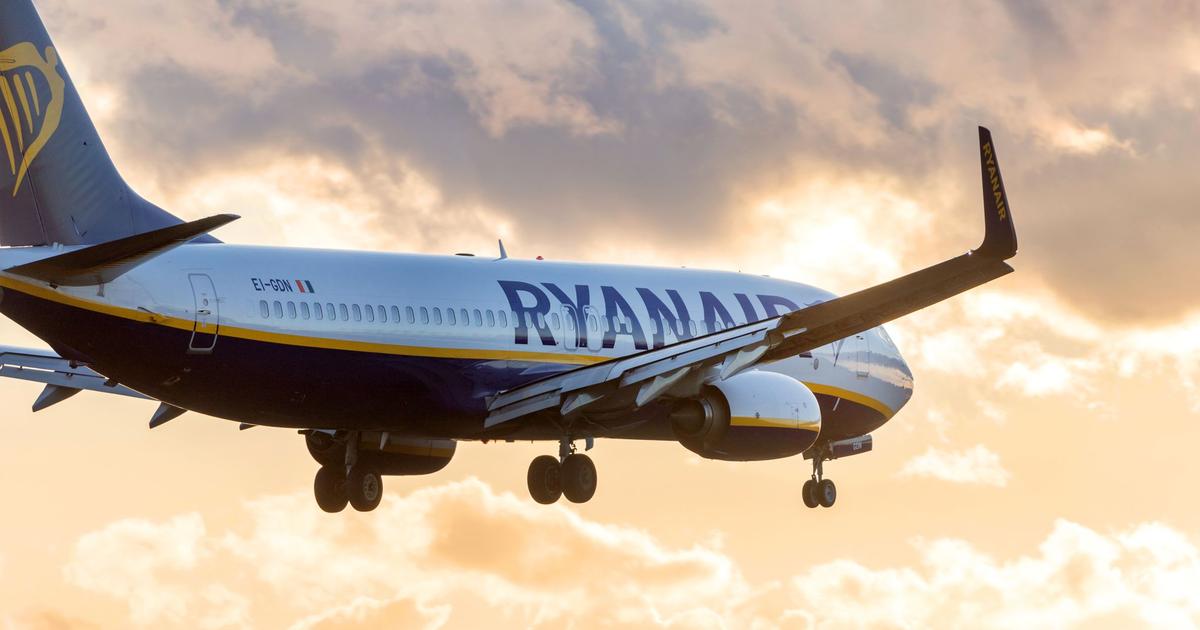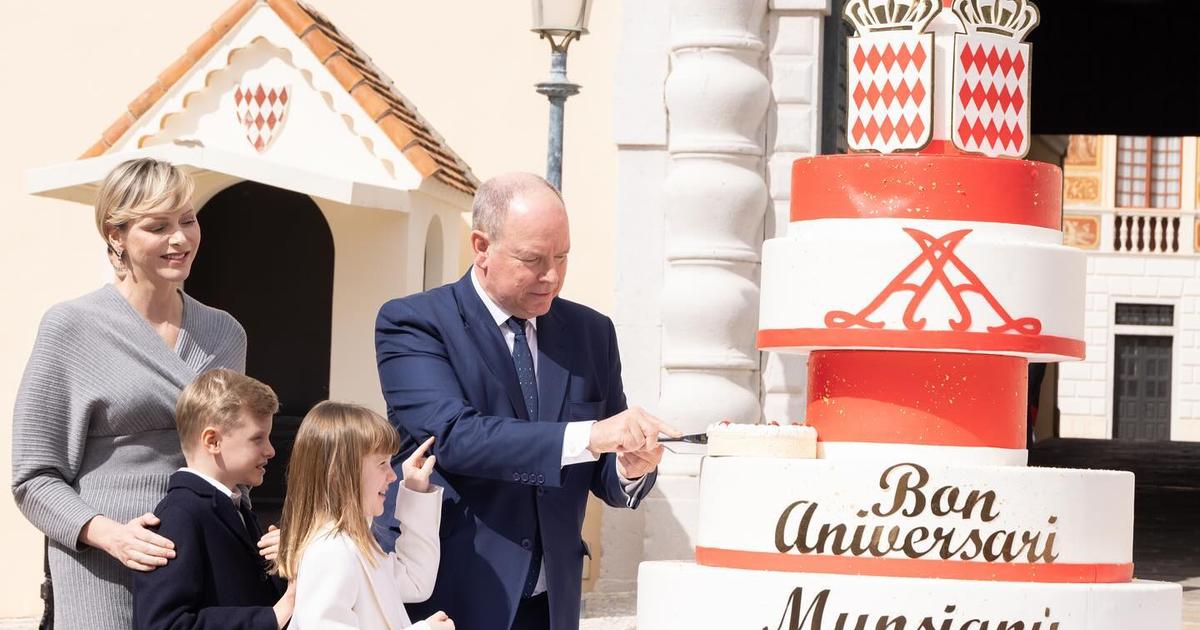A summit that drags on ... before the white smoke? The leaders of the 27 states of the European Union are still meeting in Brussels to try to agree on a recovery plan of 750 billion euros, intended to benefit the economies ravaged by the Covid-19 pandemic. Their summit was however supposed to end on Friday, but negotiations stalled.
France, but also Italy and Spain, are among the countries that should benefit the most from this aid. Opposite, a small group of so-called "frugal" states, led by the Netherlands, is blocking the signing of an agreement for the time being. In their viewfinder: the amount of subsidies deemed too high, as well as their desire for governance to "verify" what will happen to the funds.
What are the so-called “frugal” countries?
Four of them were qualified as such, by diplomats, in Brussels and by extension in the media: the Netherlands, Sweden, Denmark and Austria. Finland has joined them in their position. The five of them represent "only" 48.2 billion inhabitants, or less than 10% of the European population. It is also the equivalent of Spain alone, and less than France, Italy, and Germany.
Why do we qualify them that way?
These countries, starting with the Netherlands and Sweden, have all made drastic reforms of their labor market and / or their pension system in the last ten or fifteen years. This allowed them to greatly reduce their debt. In the Netherlands, for example, it reached less than 50% of GDP in 2019, compared to almost 70% five years earlier.
The term "frugal" refers, by extension, to their fierce opposition to any debt and their desire to limit the financial impact, for them, of the recovery plan desired by Europe. Because they do not want their efforts to be jeopardized if they have to help very generously "cicada" countries, including France, whom they accuse of having done nothing to mop up their deficit. Traditionally, these countries are also very demanding in terms of transparency and control over the use of public money.
Some leaders and observers prefer to call them "stingy." "These are stingy, selfish and withdrawn states, which benefit the most from the European internal market", judge Jean-Dominique Giuliani, president of the Robert Schuman foundation. In fact, this European market brings back to the Netherlands eleven times what it costs.
"It is a bit to take sides to consider that they are frugal and it is downright stigmatizing to qualify them as stingy," said Patrick Martin-Genier, a teacher at Sciences-po, who prefers the qualifier d '' Thrifty ''. "They manage their public finances with prudence by taking care, above all, of the interests of their taxpayers, like good fathers of family", adds this specialist in European questions.
What is their position?
These states are asking for several things in the framework of these European negotiations. On the one hand, let the total aid envelope be made up as much as possible of loans. Regarding donations, which beneficiary countries would not have to repay, they want the total amount to be limited to 350 billion euros maximum. At the start of the negotiations, they even wanted to limit it to ... 160 billion!
On the other hand, they insist on having a right of scrutiny over what will happen to the funds. The Prime Minister of the Netherlands, Mark Rutte, wishes in particular that each of the 27 recovery plans in each country be approved unanimously by the European Council. On the French side, we refuse to allow a single state to “take hostage” of the European recovery plan.
Newsletter - The essentials of the news
Every morning, the news seen by Le ParisienI'm registering
Your email address is collected by Le Parisien to allow you to receive our news and commercial offers. Learn more
On the ground, many residents refuse to consider themselves stingy and say they are ready for solidarity, but not if it is systematically to pay for others who do not make efforts. And if their leaders drop too much ballast, they could be competed nationally by populist parties.
Why is it blocking?
Opposite, the argument is that this is not a crisis like that of the Greek debt between 2010 and 2015, but a pandemic that strikes everyone, hence a requirement for solidarity.
So, it is out of the question to agree on an amount of subsidies deemed too low. France, Germany and other countries proposed Sunday evening to descend to the tune of 400 billion in donations, against 500 billion in the initial proposal. Which is already a slap for the Franco-German couple, especially for the Elysee Palace which had said and repeated that the 500 billion was a "red line". More cautious and more experienced, Angela Merkel never formulated it this way. But even 400 billion, this remains an insufficient gesture to convince the "frugal".
We are ready to compromise without giving up ambition. Everyone must take responsibility. Let's keep moving forward together. https://t.co/zdcPkH0vSh
- Emmanuel Macron (@EmmanuelMacron) July 19, 2020As for the right of scrutiny wanted by the latter, certain southern states, such as Spain and Italy, do not want it. They see it as a disguised return of the "troika", this alliance between the European Commission, the European Central Bank and the International Monetary Fund during the Greek crisis.
And these are not the only blocking points. The Netherlands, allies with France on this subject, would like in particular that the payment of the aid is conditioned to the respect of the rule of law. This has already aroused the anger of the Hungarian Prime Minister, the populist Viktor Orban, whose country is the subject of an EU procedure for breach of "European values".
VIDEO. Macron: "We are going to find France fully"
The problem is that the 27 European states must agree unanimously on these financial matters, as provided for in the EU treaties. A right of veto which the five “small” countries in question use, as they have every right to do.
“It is a real problem that makes Europe disintegrate. If we vote unanimously and if a small country can systematically block a decision, this is the end of Europe ”, laments Patrick Martin-Genier.
What could happen now?
Negotiations are scheduled to resume at 4 p.m. Monday, but diplomatic talks continue throughout the day. "An agreement is possible and an agreement is necessary", wants to believe Bruno Le Maire, interviewed this Monday morning on RMC and BFMTV. "Everyone must make an effort," also implores Jean-Dominique Giuliani. Under the cloak, a French diplomat criticizes the "frugals" for behaving like the United Kingdom during the Brexit negotiations, seeking to maximize their benefits.
Unblocking could come from "discounts" granted by the EU to certain states on their financial contribution. Concretely, in the European multiannual budget 2021-2027, the four "frugal" together receive three billion euros per year. The last concession increased this amount by an additional 100 million per year.
If the prospect of a real agreement seems to be fading, that of the absence of any compromise also seems unlikely. An in-between that risks, in the end, disappointing everyone when Europe was eagerly awaited in its response to the coronavirus crisis.









